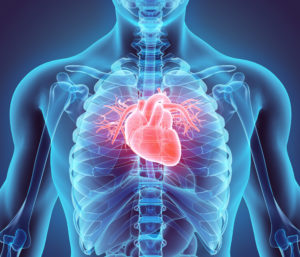 Did you know that heart disease is the leading cause of death for both men and women across the country? Indeed, according to the Centers for Disease Control and Prevention (CDC), heart disease accounts for 1 out of every 4 deaths in the United States each year. Key risk factors for heart disease include high blood pressure, high cholesterol, and smoking. However, there is another risk factor that many people do not realize: obstructive sleep apnea. In today’s blog, we unpack the connection between heart health and sleep apnea in Columbus.
Did you know that heart disease is the leading cause of death for both men and women across the country? Indeed, according to the Centers for Disease Control and Prevention (CDC), heart disease accounts for 1 out of every 4 deaths in the United States each year. Key risk factors for heart disease include high blood pressure, high cholesterol, and smoking. However, there is another risk factor that many people do not realize: obstructive sleep apnea. In today’s blog, we unpack the connection between heart health and sleep apnea in Columbus.
What is Sleep Apnea?
The second-most common sleep disorder (behind only insomnia), sleep apnea is characterized by repeated interruptions to breathing during sleep for 10 seconds at a time or more. These interruptions can occur when muscles in the back of the throat relax and block the airway or, less commonly, when the brain fails to send the proper signals to the muscles that control breathing.
When breathing is interrupted during sleep, the body goes into “panic mode” and partially wakes itself up in order to get oxygen and restart normal breathing. This interruption-panic-restart chain of events can take place dozens of times every hour during the night without a person ever realizing it and prevent them from completing the full sleep cycles needed to get a good night’s rest.
How Sleep Apnea Impacts the Heart
In addition to leaving people exhausted and unable to concentrate during the day, sleep apnea also has a range of adverse health impacts, including on the heart.
When breathing is interrupted due to sleep apnea, the oxygen levels in the body decrease, causing a person’s blood pressure to rise. High blood pressure places a serious strain on the cardiovascular system and over time leads to a higher risk of heart failure, stroke and other potentially fatal conditions.
Treating sleep apnea disorder with oral appliance therapy can reduce heart health risks by adjusting the jaw position to ensure a person’s air passage remains unblocked while they sleep and the body gets the oxygen it needs.
How Do You Know if You Have Sleep Apnea?
Because sleep apnea disorder occurs at night while you sleep, the symptoms are not always obvious. In fact, the most common symptom is loud, disruptive snoring – something your spouse or roommate will probably notice before you do!
Other symptoms of sleep apnea include:
- Excessive sleepiness during the daytime
- Frequently waking up to use the bathroom
- Trouble sleeping at night
- Waking up with a headache or a dry throat
- Difficulty concentrating at work
- Unusual mood swings
The best way to confirm that you have sleep apnea is to visit a local sleep dentist for an assessment and diagnosis. Seeking treatment for sleep apnea will not only help you sleep better at night, but will help keep your heart healthy for many years to come!
About the Author
A proud graduate of The Ohio State University College of Dentistry, Dr. Eric Buck is passionate about helping patients in Buckeye Nation consistently achieve the full night’s rest they need to wake up feeling energized each morning. That is why he has spent hundreds of hours studying and using custom-made oral appliances to treat patients with obstructive sleep apnea. Exhausted patients seeking relief from sleep apnea can find help by visiting the Columbus Sleep website or calling Dr. Buck at 614-956-9305.
